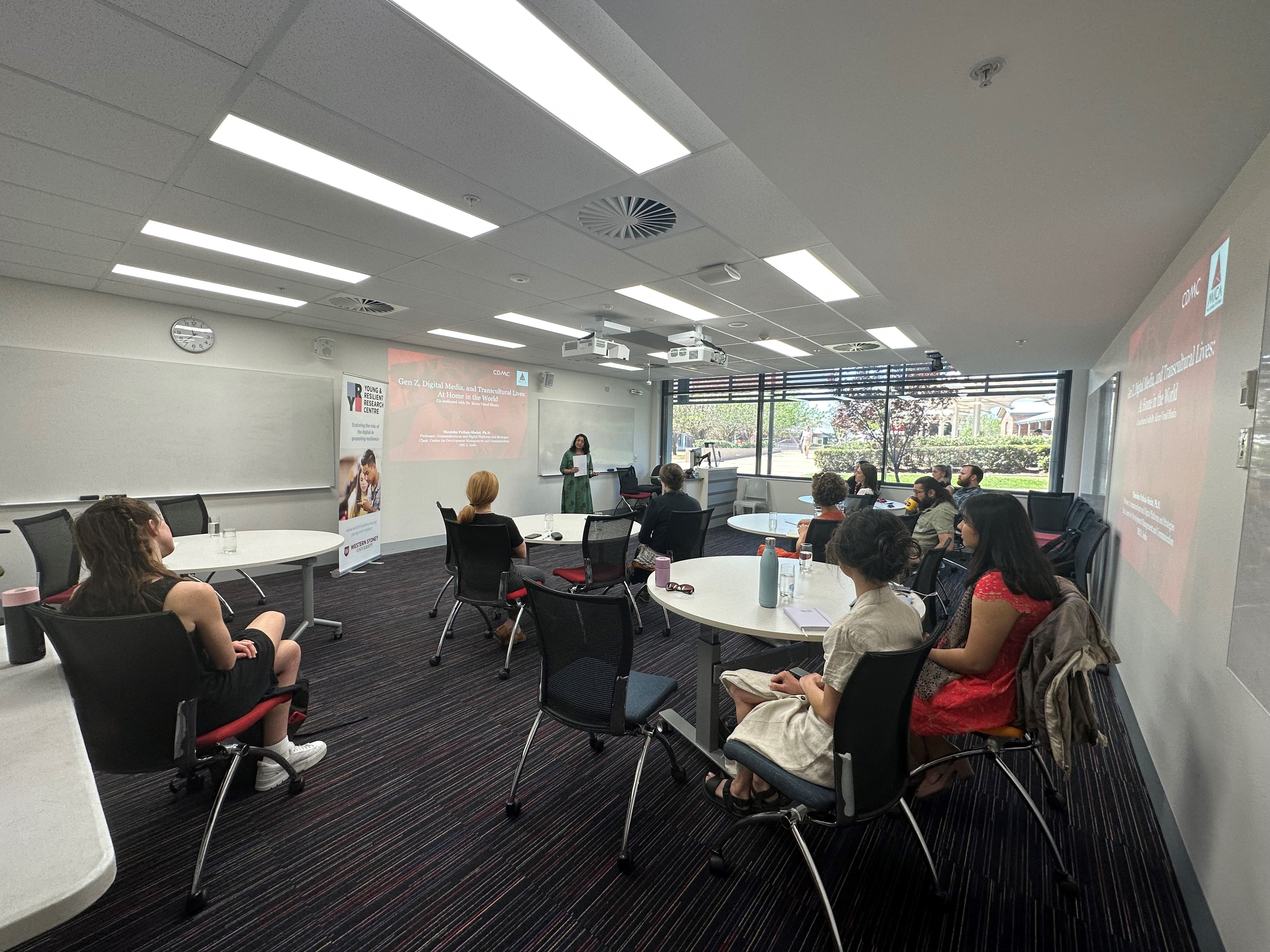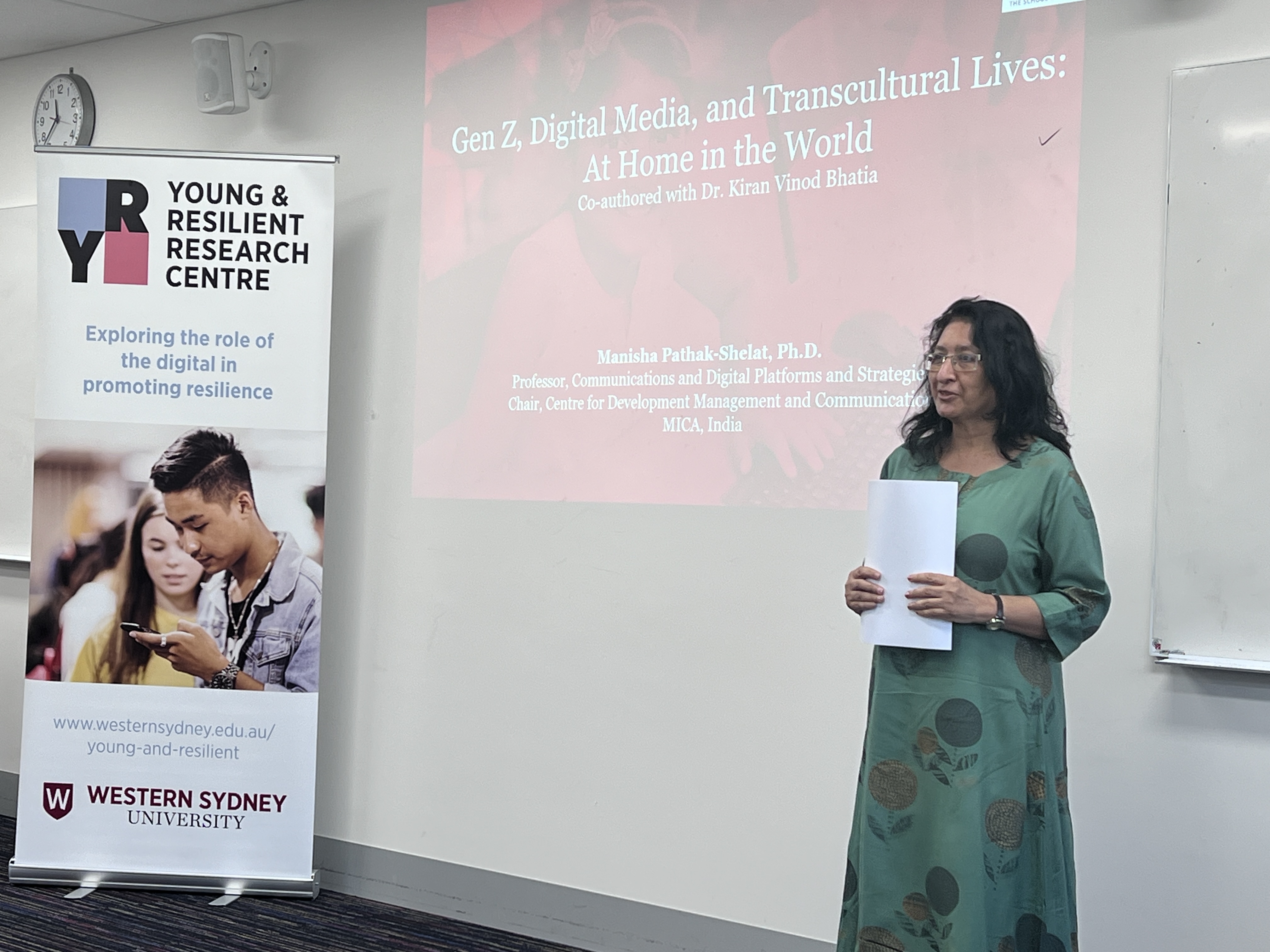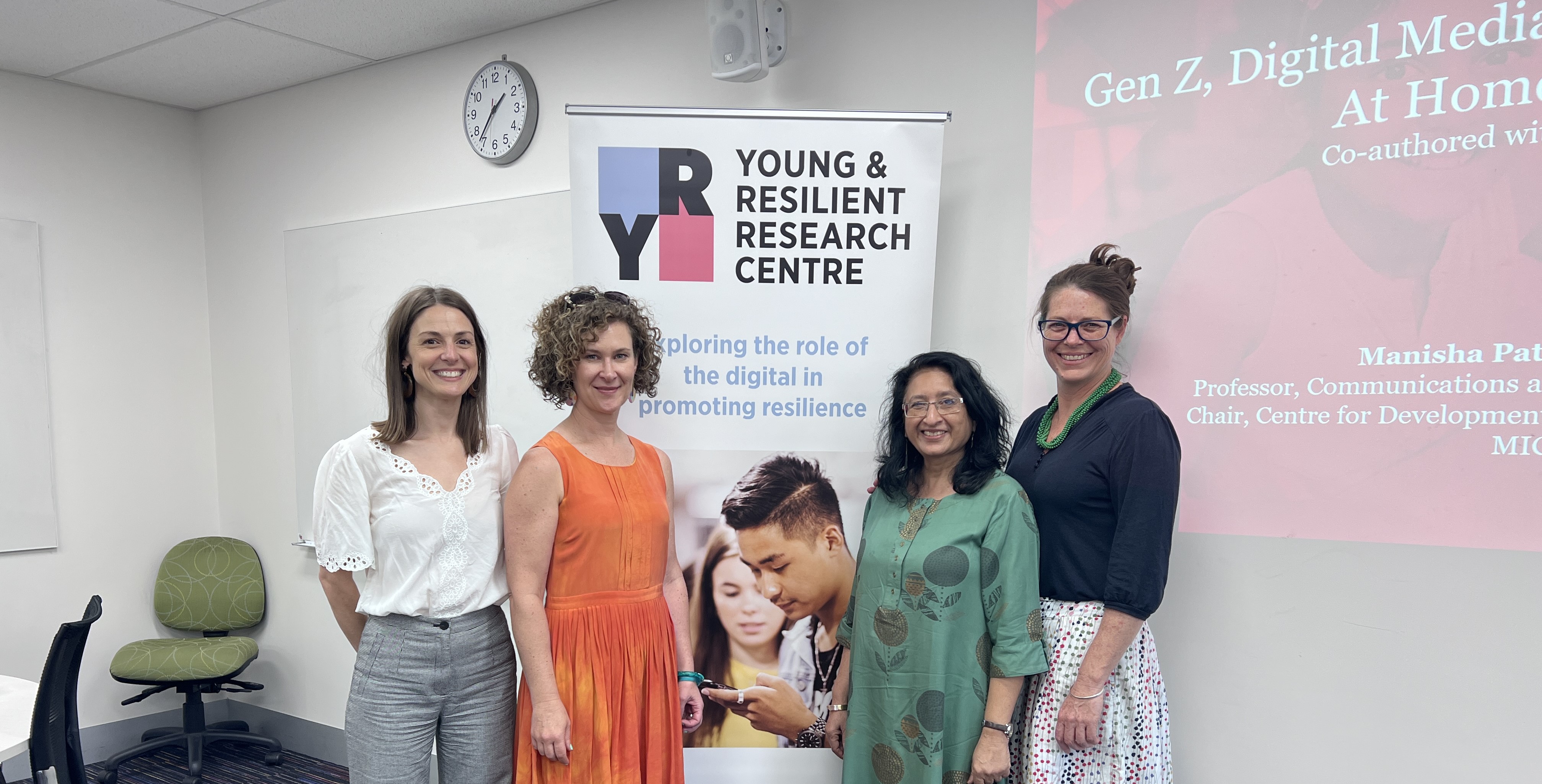Unique and Strategic: How young people in India navigate local and global communities
"Young people cultivate relationships very carefully, both online and offline,” said visiting Professor Manisha Pathak-Shelat, at her hybrid presentation on ‘Gen Z, Digital Media, and Transcultural Lives: At Home in the World’.
Prof Pathak-Shelat shared this and many more insights from a six-year-long ethnographic study, detailed in her upcoming book, co-authored with Kiran Vinod Bhatia. The study captured the experiences and insights of 68 young people aged 15 to 24, living in India.
“Every young person had a very personalised way of doing things… to negotiate global and local communities, they personalised it and developed their own interpretive framework,” explained Prof Pathak-Shelat.
“Qualitative immersive methods are very useful because this is where the nuances come out. How does one young person do this very differently from another young person?”
A user’s individual lived experience significantly shapes and frames their digital experiences, added Prof Pathak-Shelat. Key findings from the research include:
- Gen Z in the global South are increasingly becoming prosumers (consumers and producers) as they gain confidence and access to resources. This increased access allows them to influence global narratives with their own cultural perspectives and sensitivities.
- There is a need to develop multiple literacies beyond media and information literacy. Historical literacy, geopolitical literacy and cultural literacy would enhance the internet experience of users.
- There is still room for improvement in the democratisation of information and cultural flows. The global South is a legitimate participant in the global space beyond their financial value and young people in India demonstrate notable creativity to overcome barriers to digital participation.
A fascinating concept shared with the audience is ‘jugaad’ which is an Indian term used to describe a flexible approach to problem-solving that uses limited resources in an innovative way.

A special online appearance from co-author Kiran Vinod Bhatia saw the audience peppering both researchers with questions, as they shared their insights into how technology shapes entertainment and enables the consumption of new cultures to the extent that transcultural communication is a mainstream part of youth cultures in India. The authors discussed examples of the daily playful practices of young people that shape their negotiation of global and local.
Manisha is a Professor of Communication, Digital Platforms and Strategies and the Chairperson of the Centre for Development Management and Communication (CDMC), at MICA in Ahmedabad (India). She is a member of the Global Kids Online international research group with Y&R Co-Director Professor Amanda Third, and she has recently been collaborating with our team on an international project.
Prof Pathak-Shelat’s visit to Australia is a wonderful opportunity for our team to express our gratitude to her for all the collaborations we’ve had and will continue to nurture in the future. We look forward to spending time together and we’re so excited to read her upcoming book.
For more information about Prof Manisha Pathak-Shelat, click here >
You can watch Prof Pathak-Shelat’s presentation below or click here to open in a new window >


